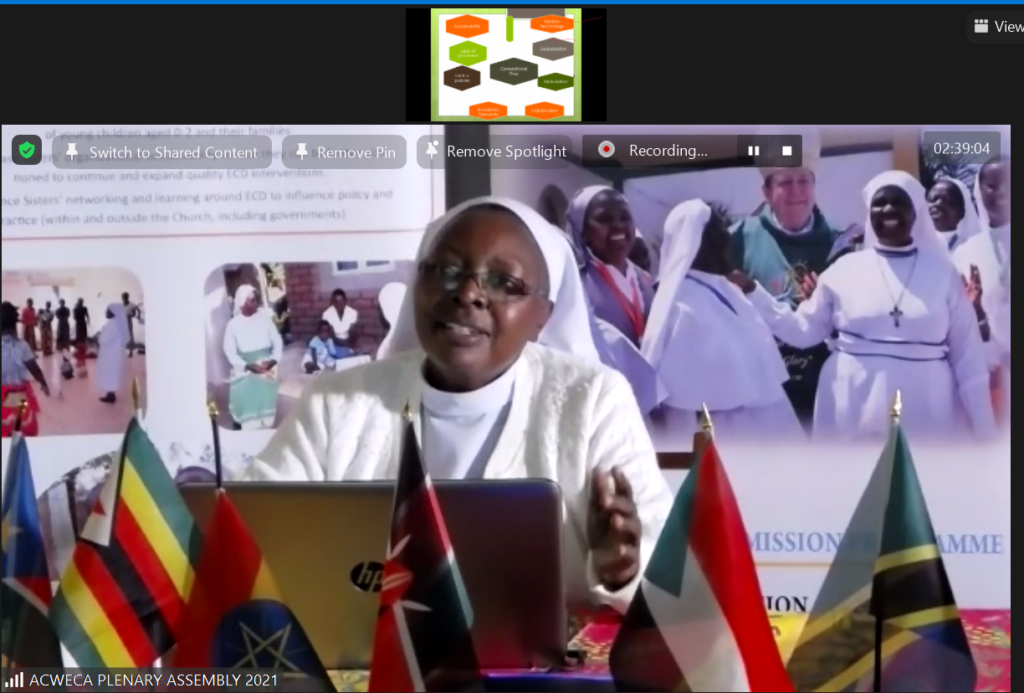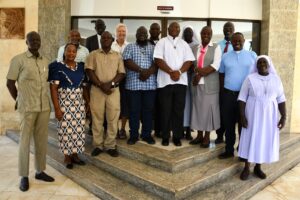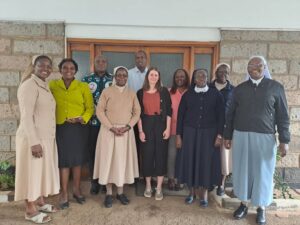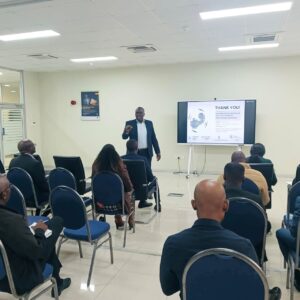ACWECA: Consecrated Women Reminded the Need for Spiritual Transformation through Evangelical Counsels

Sr. Bibiana Ngundo
Sr. Anne Henriette Owino, FSSA
Religious women during the ongoing 18th plenary assembly of the Association of Consecrated Women in Eastern and Central Africa (ACWECA) have been reminded the need for spiritual transformation through observation of evangelical counsels.
“Transformation in Religious life is both personal and communal in all its holistic forms… It involves the renewal of mind and heart, thoughts, actions and feelings from within,” Sr. Bibiana Ngundo shared with over 170 online participants during the ongoing plenary assembly which commenced Monday, August 23.
In her sharing on the second day of the assembly, Tuesday, August 24, Sr. Bibiana a member of the Little Franciscan Sisters of St. Francis (LSOSF) explained why a Congregation need to consider the original inspiration of her members saying, “For Congregations to enter the process of renewal from within, this has to begin in the heart of each individual member if it is to bear fruit. Change from personal to Christ centered values is what makes religious life common and authentic.
She narrated that spiritual renewal “cannot be done outside the evangelical counsels of poverty, chastity and obedience accompanied with prayer and work.”
On the vow of poverty in Religious life which calls for a radical change of attitude in utilization of resources, Sr. Ngundo referenced Apostle Paul who was aggressively engaged in the apostolate of winning souls and exploited his talent of tent making for economic survival.
“The focus of Religious life is not material gain. We need material things in order to progress in our God given mission,” Sr. Ngundo explained and asked Congregations to give chance to “Religious who have acquired skills to work in public or private institution since better salaries will improve communities.”
The exercise of dialogue can also be beneficial to inter-congregational harmony Sr. Ngundo said, explaining that today as opposed to the past, dialogue has become a necessary tool in the effort for the Religious to live the vow of obedience with freedom.
According to Sr. Ngundo, both the superior and their subject need to listen to one another as this promotes peace and harmony between the leaders and the people they lead as well as in the community.
Looking at the vow of chastity, true transformation requires deep reflection on one’s understanding of sexuality and how he/she can best express it with genuine freedom,” Sr. Ngundo narrated.
“All in all, work and prayer are two essentials aspects of life of a Religious,” explained Sr Ngundo adding that “the need to balance prayer and work is rooted in the need to both listen and serve as Mary and Martha did in the presence of our Lord.”


